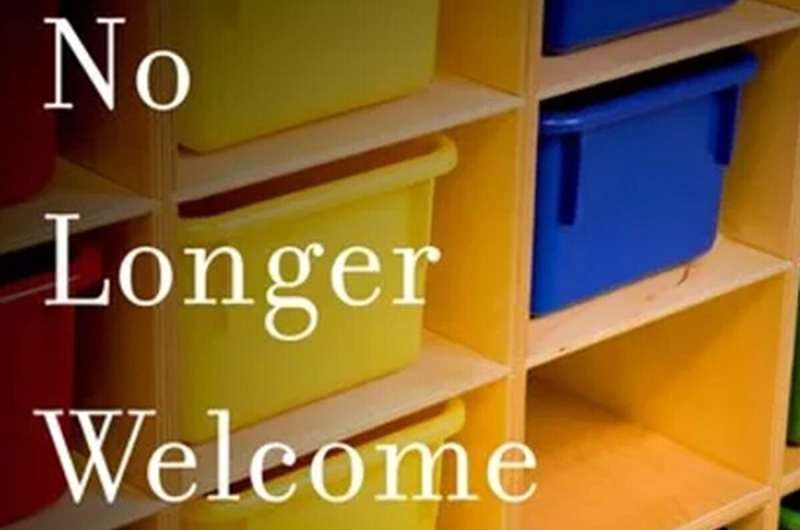New book explores crisis of early childhood expulsion, suspension practices

Hundreds of young children in the United States are expelled or suspended daily from child care and preschool classrooms at a rate nearly three times that of kindergarten through 12th-grade students.
Despite recent efforts by policymakers to address what researchers describe as an almost two-decade crisis, disparities in who is expelled continue.
Drawing on her research and interviews with hundreds of teachers, program administrators, parents and policymakers, a new book by University of Illinois Chicago early childhood researcher Kate Zinsser aims to bring context to the disciplinary decisions being made while bringing the conversation about the crisis to the public at large.
“No Longer Welcome: The Epidemic of Expulsion from Early Childhood Education” examines the factors contributing to the expulsions and humanizes the problem with numerous real-life stories about the experiences of individuals affected by what is considered a symptom of an overburdened and undervalued early education system.
“The main goal of this book is to keep the conversation front and center and keep us from collectively wiping our hands of the crisis. The exclusion of young children is harmful to our larger society, and we all have a role to play in ending the practice,” said Zinsser, UIC associate professor of psychology and principal investigator at the Social-Emotional Teaching and Learning Lab.
“No Longer Welcome” describes various personal, academic and community implications of early expulsions; why significant disparities exist and persist; and promising policies, practices and interventions.
Disciplinary decisions and responses to children’s behaviors are influenced by a mixture of factors, including individual and societal prejudices and biases; teachers’ own emotional health and well-being; whether and how teachers and schools form relationships with families; how early childhood programs support and compensate teachers; and policies and funding requirements that regulate interactions and resources.
One concern is that the children who are expelled for developmentally typical misbehavior or noncompliance are most often the ones in need of the enhanced social and emotional support and learning that is foundational to early childhood education. According to Zinsser, failure to properly support and retain children in early learning settings will result in more considerable strain on K–12 school systems to address children’s social, emotional and behavioral needs.
“While research has shown that children who have been excluded are also at higher risk for future exclusions, we can expect the long-term impacts to be significant and to affect not just the child but their families and communities,” Zinsser said.
Even with substantial progress toward identifying plausible interventions, she notes that a consensus about appropriate measures remains elusive and more work covering the long-term consequences of the expulsions is needed.
250 preschool kids get suspended or expelled each day: Five questions answered
Katherine M. Zinsser, No Longer Welcome, (2022). DOI: 10.1093/med-psych/9780197639719.001.0001
Citation:
New book explores crisis of early childhood expulsion, suspension practices (2022, September 7)
retrieved 7 September 2022
from https://phys.org/news/2022-09-explores-crisis-early-childhood-expulsion.html
This document is subject to copyright. Apart from any fair dealing for the purpose of private study or research, no
part may be reproduced without the written permission. The content is provided for information purposes only.
For all the latest Science News Click Here
For the latest news and updates, follow us on Google News.

